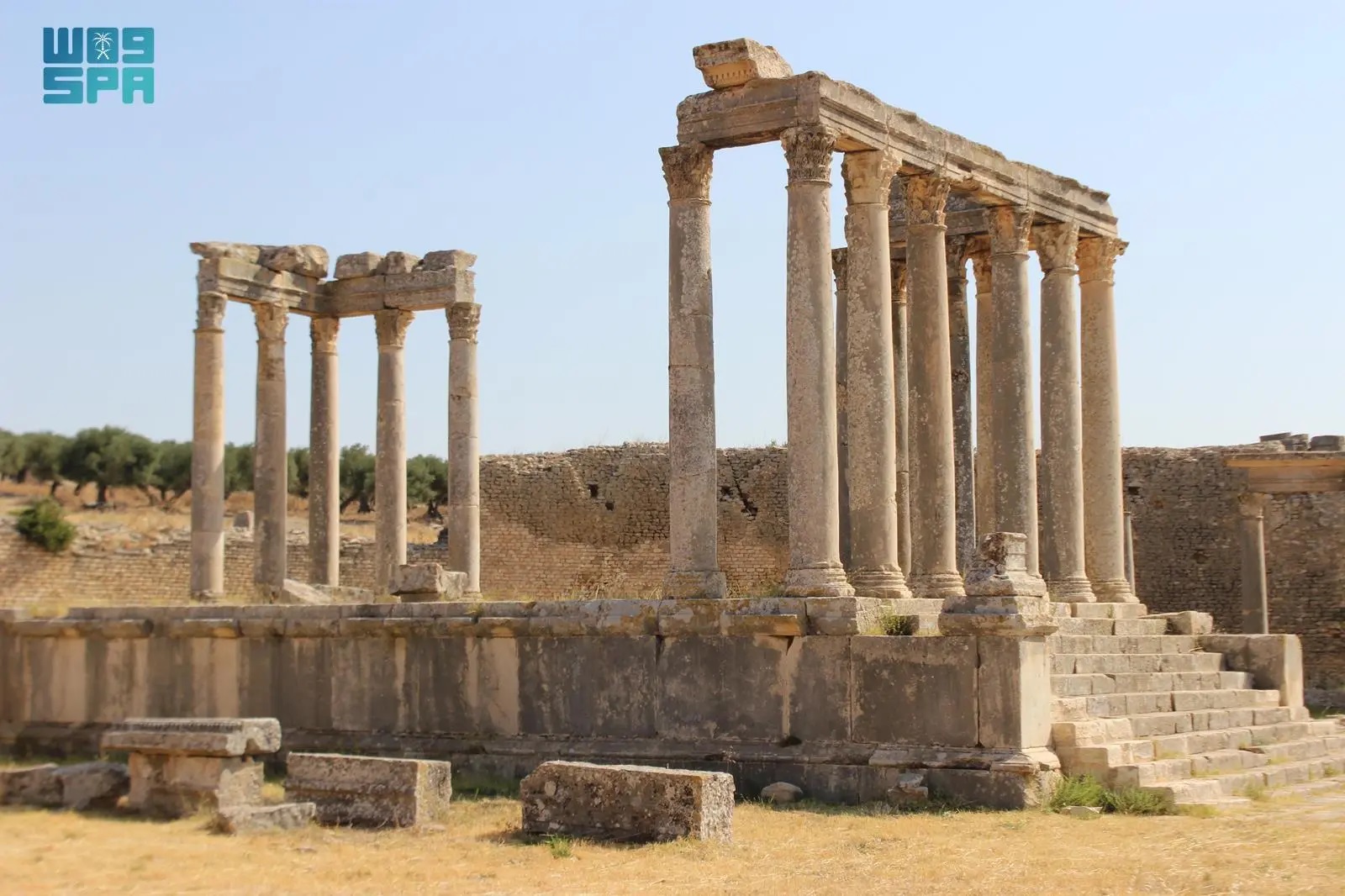
Dougga: A Glimpse into Roman Civilization in Tunisia
The historic city of Dougga in northwestern Tunisia, designated a UNESCO World Heritage Site in 1997, is a stunning testament to the grandeur of Roman civilization and one of North Africa's most important archaeological sites, celebrated for its exceptional preservation and unique blend of cultures.
Perched on a hill 500 meters above sea level, Dougga was a strategic and economic hub known for its abundant grain and olive production, which earned it the nickname "Rome's granary."
The city's rich architectural complex remains remarkably intact, featuring a Roman theater with a seating capacity of 3,500 spectators; the Capitol, an impressive Roman temple; a triumphal arch built in 205 AD to honor Emperor Septimius Severus; and luxurious private homes with exquisite mosaic floors depicting scenes of daily life.
Local historian and researcher Fathi Al-Sharni describes Dougga as an “open book” spanning more than 20 centuries of history, reflecting the coexistence and integration of diverse civilizations. Today, the site serves as a vibrant cultural and tourist destination, hosting musical events and festivals in its ancient theater.
With support from international partners such as UNESCO, Tunisian authorities are actively working to preserve and restore Dougga’s landmarks and develop tourist trails. These efforts allow visitors from around the world to experience one of the best-preserved ancient cities in the Mediterranean basin.








